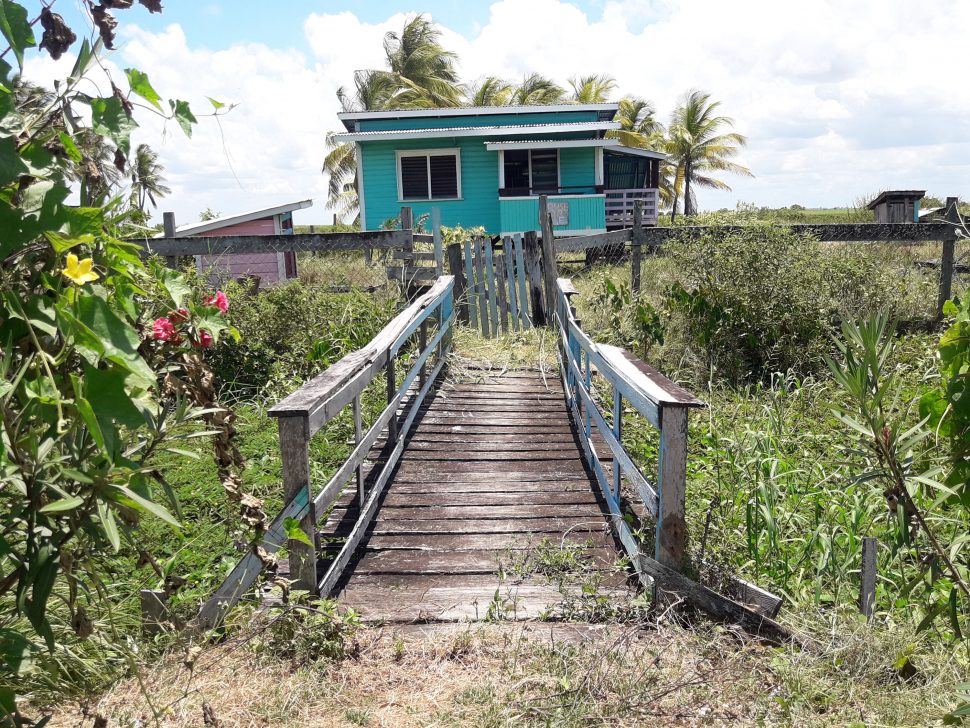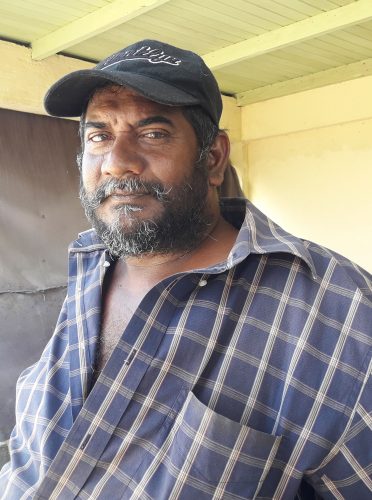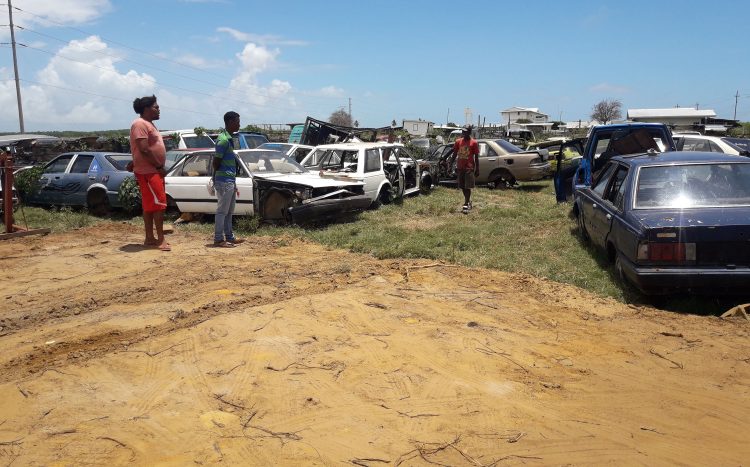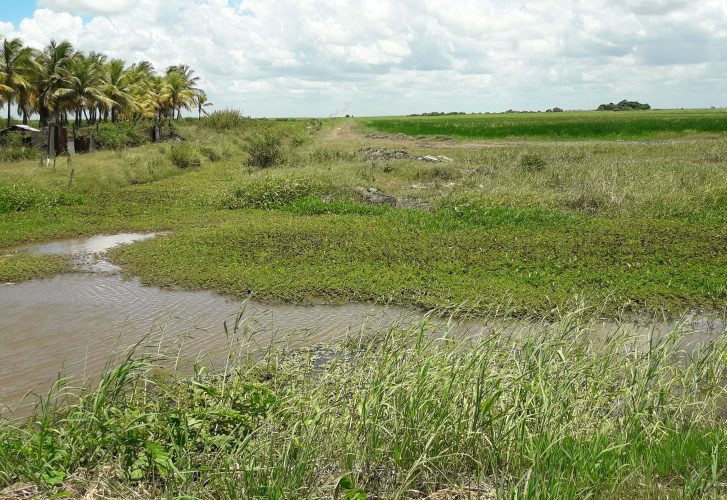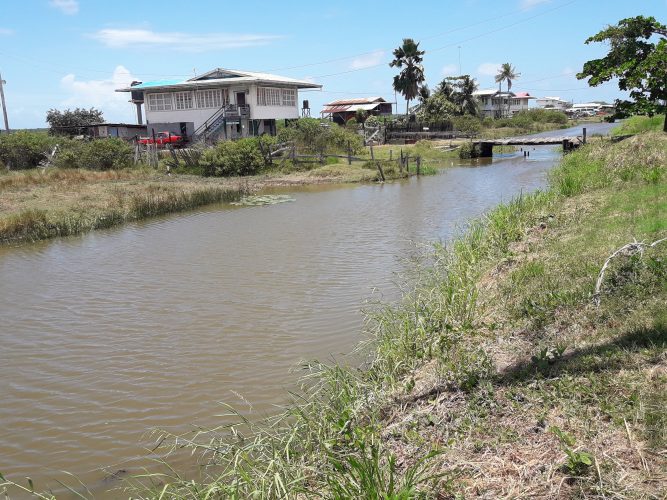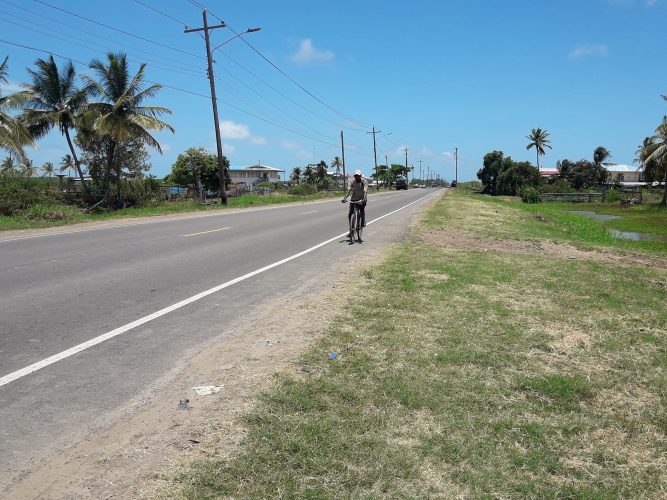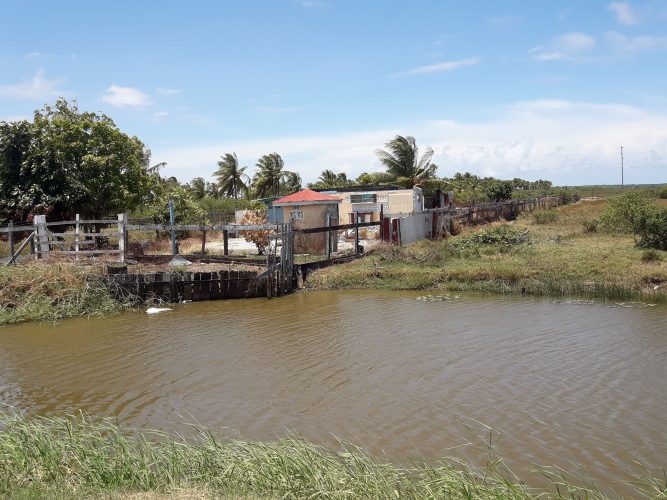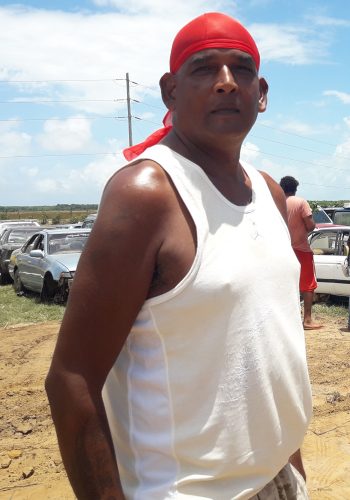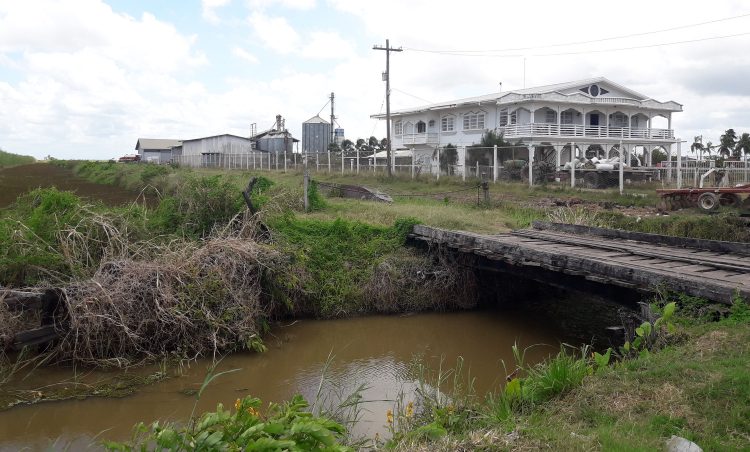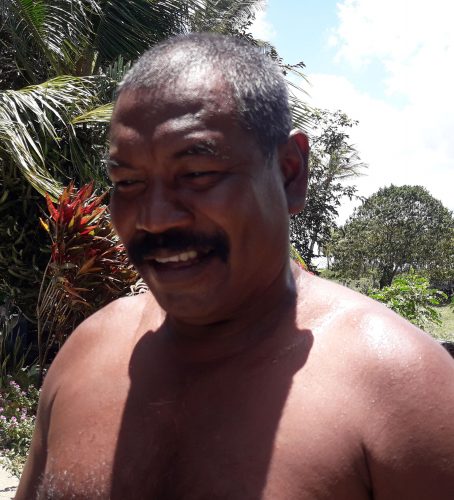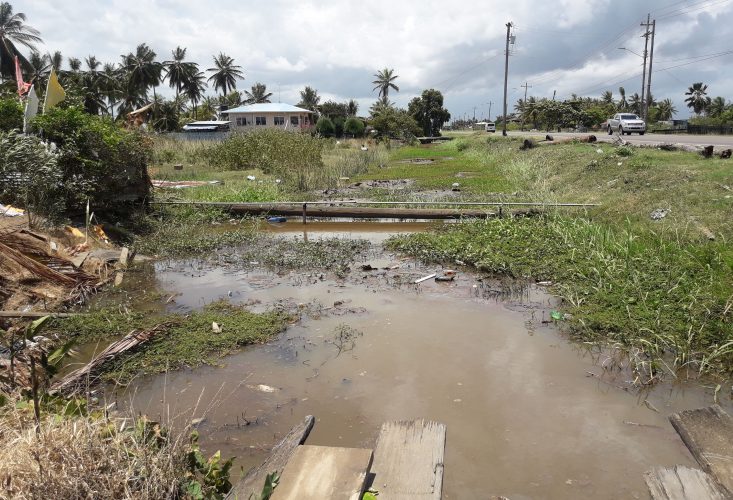Dun Robin is a tiny village on the Corentyne highway. So small that it consists of approximately eight houses with about five families; it might just be the smallest village in the county of Berbice, or maybe in the entire country. However, residents believe that if it is populated the village has the potential to become a massive commercial hub for Region Six.
Residents explained that there are many vacant lots throughout the area, which belong to overseas-based Guyanese. “I think if people sell it out and give people, the village can become a big one,” one resident said.
The man, who was shy to give his name, said he believed that the village, because of its location, can play a major role in developing the region. “Look where we deh. If people open stores and restaurants them can do nuff business. People passing here to go New Amsterdam, Georgetown and even Rosignol and then people passing to go Rose Hall, Skeldon. This village can become big, but people who own them land na want sell it out,” he said.
The name of the village Dun Robin (Dunrobin) is apparently Scottish in origin. (There is a Dunrobin Castle in the Northern Highlands in the UK, reportedly dating back to the 1300s). However, none of the village’s few inhabitants are aware of how their place of residence got its name, nor do they know much of its history, although they are the descendants of its older generation.
The village has no schools, cross streets, churches, shops, police outpost or health centre, but what it does have is a villager who buys and sells used cars for a living, a man popularly known throughout the Berbice area as “Rambo”. His given name is Presley Drepaul and he occupies Lots 1, 2 and 3. He told me that he moved into the village some eight years ago “and it deh just so. Nobody na lef, nobody na move in.”
The man explained that he had returned to Guyana to invest, but was attacked by bandits several moons ago. He left, but then later returned. He said the attack was an ordeal that will live in the back of his mind forever. “I was shot here and robbed. But hey, life goes on,” the very optimistic businessman said.
And while he said he was not complaining, he noted that he was not getting much business at the moment. “People does call me and say they get cars to sell. I buy it, fix it up and sell it back,” he stated, adding, “I buy it cheap and sell it back cheap.”
The man posited that having a landline phone would benefit his business a whole lot as persons would be better able to contact him via a landline. But the village has never had such service. “The lights on the street is very excellent though,” he added.
Stanley Veerasammy, 51, another resident who grew up in the village, explained that during his childhood they would walk several villages away, approximately half a mile to fetch drinking water, while they used the trench water to bathe and wash. The man applauded the Guyana Water Incorporated for providing potable water. But, he stated, “We start dropping back. We ain’t getting things like we used to five years ago, but we alright.”
Veerasammy, who lives with his 68-year-old mother, 72-year-old father and a sister, explained that his father was a rice farmer back in the day. However, he said, he moved away from that life and now rears cattle.
According to the resident, villagers are mostly cattle rearers and rice farmers.
The man noted that there have been only two major robberies over the year, but for the past five years the village has been crime free.
Anand Singh, who has been in the village for over ten years, complained about a major drainage issue. He explained that the regional administration awarded a project to have the trench cleaned, but the person who won the contract has not been doing anything despite complaints from residents. “We rice under threat,” he stressed. “This trench block up. The residents all complaining cause nothing ain’t flowing.
“Me na see nobody in the trench a clean. About two months ago me see one machine do some work and every month it suppose to clean.”
Meanwhile, the man added, farmers in the village are in dire need of a proper dam. “About over 40 years rice a plant at the back; we need a good dam,” he said.
Going into a bit of history he said, “People gone overseas or dead and this a them children a live now. This is always the house in this village. I remember one house move out.”
Meanwhile, the village has a rice mill which according to residents has been out of operation for over five years. However, persons are employed at the mill to carry out other works.
Residents said the mill began operation some 25 years ago. Its owner, who is now dead was known as “Tej”, one resident said, adding, “His children does look after it now.”
There is also a very old building filled with bushes which some persons claim was once a “fishery”, while others said it was a chicken farm.
A few houses in the village were wide open with no one at home at the time of my visit; it seems residents in the area are very comfortable leaving their homes open.
People who live in different parts of Region Six tend to venture to Dun Robin and fish in its trenches almost every weekend and early in the morning. On Saturdays, a vendor sells crab along the highway.
Persons travelling along the highway can miss seeing the village if they happen to blink while in its vicinity. But residents are calling on the authorities to visit the area and interact with them. They said too that the village is also a hotspot for photoshoots, especially wedding photos and other events.
